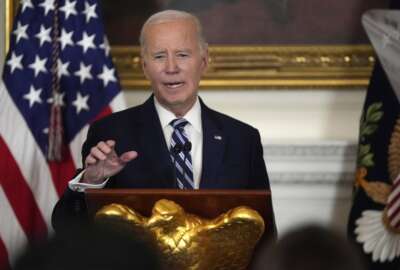Top Mexican official calls US border wall a ‘hostile’ act
Mexico's foreign relations secretary called U.S. President Donald Trump's plan to build a border wall an "unfriendly, hostile" act, saying it is a "bad idea" that...
MEXICO CITY (AP) — Mexico’s foreign relations secretary called U.S. President Donald Trump’s plan to build a border wall an “unfriendly, hostile” act, adding Tuesday that it is a “bad idea” that will not accomplish anything.
And while Trump has repeatedly asserted that he will get the U.S.’s neighbor to pay for building the wall, Foreign Secretary Luis Videgaray repeated in a meeting with legislators that Mexico’s won’t pay a cent for it.
Trump had requested that Congress provide U.S. funds to begin the wall, but he signaled Monday that he would not insist on it, saying he might be willing to wait until September for the funding.
Videgaray also said Mexico’s government would consider reducing security cooperation with the United States if talks on immigration and trade issues don’t go well.
“If the negotiation on other themes — immigration, the border, trade — isn’t satisfactory to Mexico’s interests, we will have to review our existing cooperation,” Videgaray said. “This would be especially in the security areas … and that involves the national immigration agency, the federal police and of course, the armed forces.”
Mexico at present cooperates with the United States in fighting drug cartels and other forms of transnational crime.
Videgaray also said the Mexican government was considering charging a fee for Americans entering the country, though he didn’t fully describe the idea or say to whom it might apply.
Asked by a legislator whether Mexico had considered imposing visa requirements for Americans, he answered: “We could explore — not necessarily a visa, that could impede a lot of people from coming to Mexico — but we could perhaps (have) a fee associated with entry. This is something that I’m sure will be part of our discussion, and I believe we can find points of agreement.”
Copyright © 2025 Federal News Network. All rights reserved. This website is not intended for users located within the European Economic Area.





